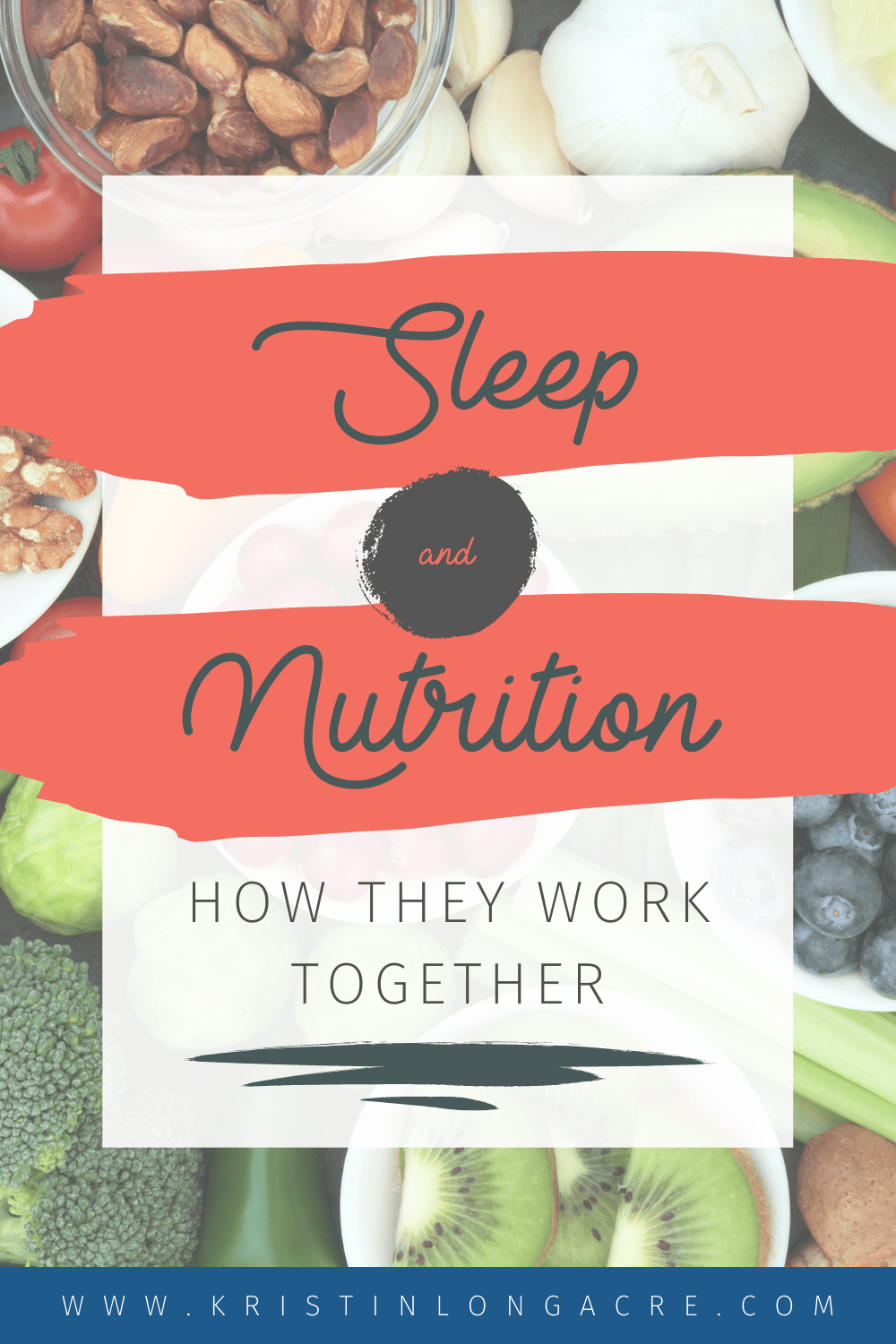February 8, 2022
Sleep is a topic that often gets overlooked as being a piece of nutrition. What happens off your plate also can affect what happens on your plate.
Disclaimer, everything I’m talking about assumes that you can get a normal amount of sleep. This is not for new parents, parents with babies at home, people that work a job that doesn’t allow them to have that much sleep. What I’m going to talk about is assuming you can get a normal amount of sleep at night.
This is something we talked about in the What’s Your Body Telling You Workshop. We talk about how it plays a part in your everyday life and how it can affect your nutrition and health. We’re going to hit the highlights here but if you want to dig in more, check out the workshop.
Why Is Sleep Important?
- Sleep is important because it helps your body:
- Fight off viruses
- Rest, rebuild and regenerate
- Reduce inflammation.
If you aren’t getting the right amount of sleep, it can prevent your body from being able to function at its best. When you’re either staying up too late or you’re sleeping too much, you’re potentially going to make poor choices in nutrition that will affect your health.
These days we seem to celebrate the grind and praise those who don’t sleep or get up early, functioning only on 4 hours of sleep, and everything like that. If you’re not prioritizing your sleep, you are going to eventually burn out.
Poor Food Choices Lead to Poor Sleep
First things first, poor food choices can actually lead to poor sleep. This is one of the key elements of sleep and nutrition and why they work together.
For example, if you’re eating too much for dinner, you can be uncomfortable when you lay down to go to sleep. Instead of being able to fall asleep, you toss and turn all night.
However, one of the things we talked about very heavily in the workshop is that if your body is inflamed, or you’re eating food that your body doesn’t agree with, you’re not going to be able to settle down and sleep at night. Poor nutrition choices can trigger things like anxiety, brain fog, inability to focus, etc…
That’s your body’s way of telling you that something’s not right.
Poor Sleep Leads To Poor Food Choices
On the flip side, not getting enough sleep can lead to poor food choices.
Can you relate to this? You toss and turn all night, you’re up half the night worrying about something that in the grand scheme of things doesn’t really matter. You get up in the morning, you’re running late, because you hit snooze 25 times, grab a coffee on your way out the door, don’t eat breakfast.
All of a sudden you’re already off to a bad start with your nutrition for the day. Maybe you skip the gym because you’re tired, and your body needs to rest. When you come home, you’re ready to go to bed, you want to just lay down for the rest of the night.
Dinner is a frozen meal or takeout. Finally bedtime hits, all of a sudden you can’t sleep.
That is a cycle that will continue to go on and on and on as long as you are not paying attention to what you’re eating.
It’s time to break the cycle.
Finding Your Sleep Sweet Spot
The key is finding your sweet spot for sleep. It should be somewhere between 6 and 8 hours. If you go over 10, chances are you’re getting too much sleep and your natural rhythms are really going to get thrown off.
Something to keep in mind is that sleep supplements drinking alcohol in order to get better sleep can make things worse.
Technically yes, they help you fall asleep, but they don’t allow your body to do the things like rebuild, restore, rebuild that immunity and rest reduce that inflammation. Instead, your body has to fight off the foreign invader (the supplements or alcohol) all night instead.
How Do You Break The Poor Nutrition/Sleep Cycle
So what do you do instead? How do we break this cycle?
Start having a bedtime routine. Yes, even as an adult. A couple of hours before you plan to go to bed, start to dim the lights around your house. This will start to tell your body that it is getting closer to time to rest.
Then the big one, reduce technology. The longer you are awake staring at technology, the longer your body is going to continue to fight off sleep.
Build a routine you can start doing consistently so when you start going through it over time your body knows “okay it’s time for sleep.”
Over time this will get easier and your body will adapt.
Oh, and eat some vegetables.
ABOUT ME
Hey There, I’m Kristin! I coach women to make small changes in their daily nutrition to become the best version of themselves.

